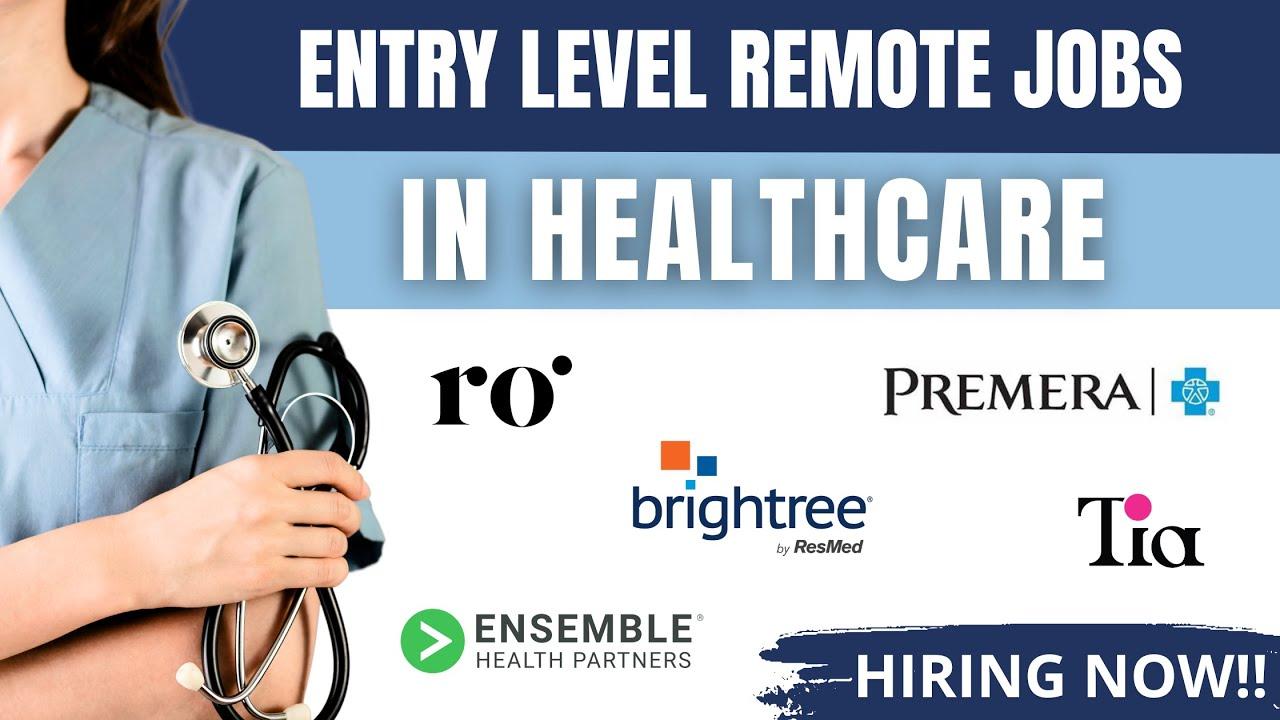Table of Contents
- Exploring the Benefits and Challenges of Remote Healthcare Jobs
- Top Remote Healthcare Positions in High Demand
- Essential Skills and Tools for Virtual Healthcare Professionals
- How to Start Your Career in Remote Healthcare
- Enhancing Patient Care Through Virtual Solutions
- Q&A
- The Way Forward


Exploring the Benefits and Challenges of Remote Healthcare Jobs
Remote healthcare jobs have gained significant popularity, providing a myriad of opportunities for both professionals and patients. One of the key advantages is the flexibility it affords healthcare workers. Without the constraints of a traditional office setting, professionals can balance work with personal commitments more effectively. This flexibility also extends to the choice of locations, allowing healthcare providers to work from virtually anywhere in the world, as long as there is reliable internet access. For those living in rural or underserved areas, this opens up avenues to collaborate with leading institutions without the need to relocate.
However, transitioning to a remote healthcare setup isn’t without its challenges. Maintaining effective communication is paramount, yet it can sometimes be hindered by technological limitations or a lack of face-to-face interaction. Ensuring security and privacy remain highly prioritized can also be complex, especially when dealing with sensitive patient data over digital platforms. Professionals may need to invest in advanced security software and undergo specialized training to mitigate these risks. Furthermore, adapting to new technologies requires time and effort, which can be a hurdle for some practitioners.
In terms of patient care, remote healthcare jobs can dramatically improve access to medical services. Patients benefit from shorter waiting times and the ability to receive consultations and follow-ups from the comfort of their own homes. However, the effectiveness largely depends on the availability of appropriate technology, such as reliable devices and internet connectivity, that ensures smooth communication. Below is a simple comparison of the benefits and challenges for quick reference:
| Benefits | Challenges |
|---|---|
| Flexibility in work hours | Technological limitations |
| Remote location independence | Security and privacy concerns |
| Improved patient access | Need for technology adaptation |
Top Remote Healthcare Positions in High Demand
As the landscape of healthcare evolves, a wide array of roles have emerged to accommodate remote work, making it possible to deliver top-notch medical services from almost anywhere. Among these roles, telemedicine practitioners lead the charge, leveraging technology to provide consultations and diagnoses through video conferencing. Healthcare systems are increasingly adopting this approach to deliver immediate patient care, especially for common ailments that don’t require physical examination.
Health informatics specialists are also in high demand, playing a crucial role in managing patient data and digital health applications. These professionals ensure that health information systems are functional, secure, and compliant with healthcare regulations. Their work not only improves the workflow of medical facilities but also enhances patient outcomes by offering accurate data analytics and trends.
Additionally, medical billing and coding specialists have become essential remote team members. They meticulously translate healthcare services into proper codes to maintain accurate billing records and ensure insurance claims are processed swiftly. Given the administrative complexities of modern healthcare systems, their skills are invaluable for streamlining financial operations. Below is a brief overview of their key responsibilities:
| Position | Key Responsibilities |
|---|---|
| Telemedicine Practitioner | Patient consultations, remote diagnostics |
| Health Informatics Specialist | Data management, system security |
| Medical Billing & Coding Specialist | Code translation, insurance processing |


Essential Skills and Tools for Virtual Healthcare Professionals
| Tool | Primary Function |
|---|---|
| Electronic Health Records (EHR) | Streamline and store patient information securely. |
| Scheduling Software | Organize appointments efficiently with automated reminders. |
| Data Analytics Platforms | Analyze patient data to improve care outcomes. |


How to Start Your Career in Remote Healthcare
Embarking on a journey in the field of remote healthcare begins with understanding the diverse range of roles available. The industry offers flexible opportunities tailored for various skill sets, from telemedicine to health information management. Consider exploring positions such as:
- Telehealth Nurse: Providing patient care and support over digital platforms.
- Remote Medical Coder: Translating medical records into standardized codes for billing.
- Digital Health Coach: Guiding individuals in achieving health goals using digital tools.
Gaining relevant qualifications is a crucial step to ensure a robust entry into this dynamic sector. Prospective candidates should look for certification programs or online courses that enhance their expertise and marketability. Essential courses could cover:
- Telehealth Best Practices
- Health Informatics
- Digital Communication Skills
When seeking employment, leverage popular job platforms that specialize in healthcare remote positions. Networking within online healthcare communities can also be invaluable. Here’s a simple way to track your job search progress:
| Platform | Status |
|---|---|
| Applications sent: 5 | |
| Indeed | Interviews: 2 |
| Remote.co | Offers received: 1 |


Enhancing Patient Care Through Virtual Solutions
The growing trend of remote healthcare jobs is revolutionizing the way patient care is delivered, offering flexibility and enhanced access to healthcare services. One of the key advantages of these virtual solutions is that they allow professionals to extend their reach and provide care to more patients, particularly those in underserved or remote regions. This geographical flexibility ensures that more individuals receive timely medical consultations and follow-ups without the constraints of physical proximity. Virtual consultations, remote patient monitoring, and teletherapy sessions are just a few modalities that have seen widespread adoption, proving effective in maintaining patient engagement and continuity of care.
Benefits of Virtual Healthcare Solutions:
- Reduces travel time for both providers and patients
- Enhances patient comfort and convenience
- Facilitates better management of chronic diseases through continuous monitoring
| Technology | Application |
|---|---|
| Telehealth Platforms | Conduct virtual consultations |
| Remote Monitoring Devices | Track vital signs from home |
| Healthcare Apps | Offer personalized health insights |
As virtual healthcare continues to evolve, there is an increased demand for diverse skillsets within this field. Jobs such as telehealth coordinators, electronic health record managers, and online health coaches are becoming crucial for operating and optimizing digital health services. Professionals in these roles ensure smooth interface between technology and patient care, and their expertise helps navigate the complexities of virtual healthcare systems. It’s imperative for healthcare providers to embrace these digital transformations, as they mark a significant shift towards more accessible, efficient, and patient-centered care.




0 Comments